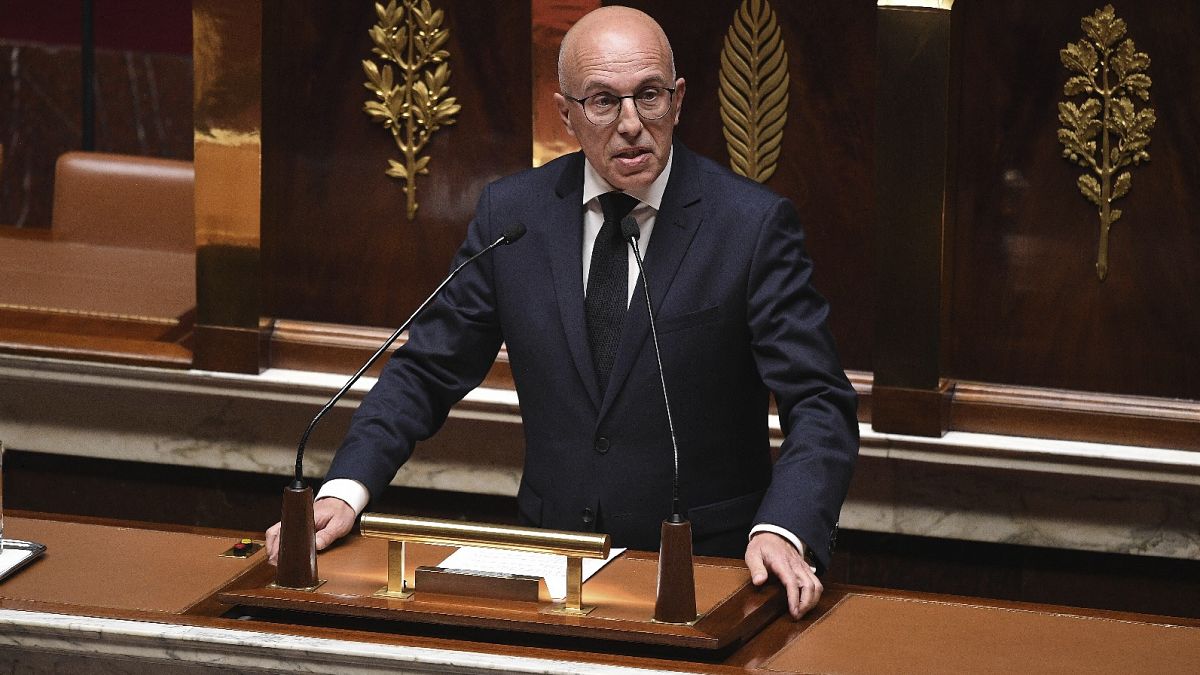Eric Ciotti, the leader of France’s The Republicans (LR), found himself expelled from the traditional right-wing party after announcing his intention to form an alliance with the far-right National Rally (RN) ahead of snap legislative elections. The party stated in a unanimously voted decision that Ciotti is no longer a member of The Republicans. This move came as a shock to many within the party and led to an uproar among its members. Despite his expulsion, Ciotti refused to resign as he contested the vote, claiming that none of the decisions made during the meeting had any legal consequences.
The interim governance of The Republicans will now be handled by Annie Genevard, the party’s secretary general, and François-Xavier Bellamy, a Member of the European Parliament. Ciotti, however, stood firm on his position, asserting that he is still the president of the political party, elected by its members. In response to the party’s decision, Ciotti shut down the party’s headquarters in Paris, stating that the meeting to expel him was against the party’s rules. This move further escalated tensions within the party and raised questions about the future direction of LR.
Not only did Ciotti’s announcement create internal turmoil within The Republicans, but it also triggered reactions from other political parties. French President Macron criticized Ciotti for his decision to ally with the far-right, stating that he will have to clarify his actions after making a “pact with the devil.” Macron’s comments reflect the overall sentiment of many who view an alliance with the far-right as concerning and potentially damaging to the country’s political landscape. The fallout from Ciotti’s decision highlights the divisions within the French political spectrum and raises questions about the future of traditional right-wing parties.
The backdrop to Ciotti’s expulsion is the recent snap elections announced by President Macron following his party’s defeat to the far-right RN. The RN’s strong showing in the elections, with over 31% of the vote, dealt a significant blow to Macron’s centrist Renaissance party. In contrast, The Republicans finished fifth with only 7.2% of the ballots, trailing behind left-wing parties such as the Socialist and France Unbowed. The results of the elections underscore the shifting political dynamics in France and the challenges facing traditional right-wing parties like The Republicans in a changing political landscape.
Marine Le Pen, the RN’s former leader and president of its group in the national assembly, praised Ciotti’s decision as “courageous.” Le Pen’s support for Ciotti’s alliance with the far-right further emphasizes the growing influence of the RN in French politics. The rise of the far-right as a political force poses a challenge to mainstream parties like LR and highlights the need for strategic alliances and political positioning in response to changing voter preferences. Ciotti’s expulsion from The Republicans marks a turning point in the party’s trajectory and raises questions about its ability to navigate the increasingly complex political landscape in France.
In conclusion, Eric Ciotti’s expulsion from The Republicans and his bid to ally with the far-right National Rally have created a seismic shift within the traditional right-wing party and the broader French political landscape. The fallout from his decision underscores the challenges facing mainstream parties in response to the rise of the far-right and changing voter preferences. The internal turmoil within LR, as well as the reactions from other political parties, signal a period of uncertainty and transformation in French politics. As traditional parties grapple with these changes, the future direction of French politics remains uncertain, with alliances, strategies, and positions coming under increased scrutiny and debate.






























